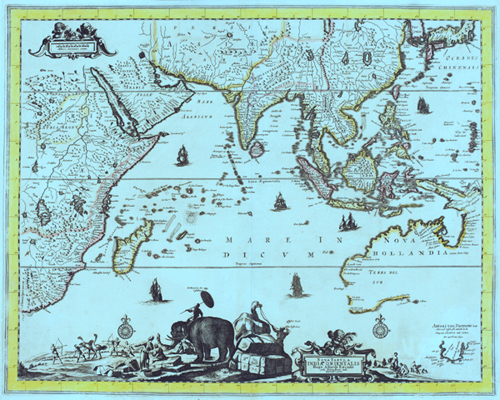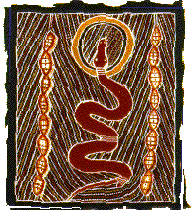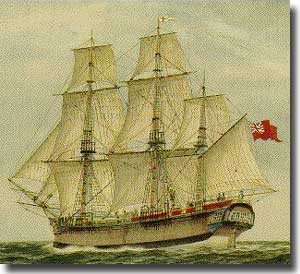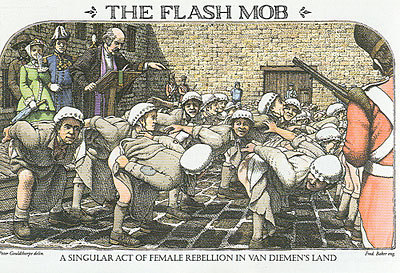from Tucker’s Eunuchs.........................................................
President Thomas Jefferson said that homosexuality "should be punished, if a man, by castration, if a woman, by cutting through the cartilage of her nose a hole of one-half inch in diameter as least." ( Thomas Jefferson had intercourse with his own under-age slaves.)
Castration has been a popular form of punishment: legally, illegally, and the gray area in between, in times of war or deposition when the legal system itself is challenged. Taylor puts it more succinctly: "judicial or extrajudicial." (165) "As medieval punishment for rape or adultery it [castration] satisfied the jus talionis, an eye for an eye. In Europe, from 1906, it was a common sentence for sex offenders." (Abbott p 335)
In the Shang dynasty (1766-1122 BCE) castration was a punishment.
The Emperor Phocas was castrated and executed by the soldiers of Heraclius, exarch of Africa. (Tompkins)
A Roman eunuch who had sex with a palace woman could be executed. Therefore, declared homosexual eunuchs may have been preferred, to reduce the chance of a scandal and an unfortunate outcome. Homosexual eunuchs may not have been in short supply: "Ironically, homosexuality was punished by castration, leading the public to equate eunuchs with homosexuals. Homosexuality was the preferred charge against those suspected of plotting against the emperor." (Abbot 325)
In 1879 the young progeny of executed Central Asian rebel chief Yakoob Beg were castrated and handed over to the Chinese Palace. (Tompkins)
c. 1200 BCE, Pharaoh Merneptah inscribed the walls of Karnak with details about his victory over the Libyans. 6 penises of Libyan generals, 6,359 from the general Libyan populace, 222 from Sicilians, 542 from Etruscans, 6,111 from Greeks. (Friedman, A Mind of Its Own, p 9) Tompkins wrote:
the Egyptians, Persians, Assyrians, Ethiopians, Medes, and the Hebrews all castrated, as a means of subduing them, their vanquished enemies. So did the Chinese. Among the American Indians, it was the women who did it to their captured prisoners. Ancient monuments show conquerers cutting off the phalli of the vanquished in sign of servitude, their right ahnd that they might no longer bear arms. In the inventory of trophies taken by the Egyptian King Meneptah from the invading Libyans, thirteen centuries before Christ, there are included a total of 13,230 penises, six of which belonged to generals. No worse, I suppose, than the Nuremberg trials. A Theban relief shows the victorious Egyptians throwing trophies into a pit, with the inscription: 'Prisoners brought before the king, 1000; phalli, 3000. Nebuchadnezzar II of Babylon mutilated his Jewish prisoners of war, whereas the Biblical David, to prove that he was worthy of becoming Saul's son-in-law, brought him, so it tells us in I Samuel 18:27, two hundred foreskins of conquered Philistines. The most fantastic of such tales is the one told by a nineteenth-century historian of the Seldjuk sultans in which after a great victory over the last of the Khwarazmians, Key Coubad I ordered the testicles or scrotums of thirty thousand slain enemy soldiers joined together to produce three hundred tents--a task which apparently occupied the greater part of the army for five whole days, but produced what was described as a memorable memento of the battle! Soon the practice developed of seeking out the smartest-looking children of a conquered enemy, castrating them, bringing them up with care in the palace, usually by other eunuchs, to form a sort of palace civil service. Herodotus flatly maintained that it was the Assyrians who were the first to make use of eunuchs for other than religious purposes. He tells how Persian generals in their campaigns against the Greeks no sooner got possession of a town 'than they chose out all the best favored boys and made them eunuchs, while the most beautiful girls they tore from their homes and sent as presents to the king...'
"The eunuch Halotus was supposed to have helped Agrippina poison Claudius with a dish of mushrooms so that her son Nero might succeed as emperor." (Tompkins)
According to the historian Herbert and philosopher Hume, English priests who didn't follow the edict against Thomas a Becket were castrated. Geoffrey, the father of Henry II, was master of Normandy and ordered the testicles of these priests to be brought to him on a platter.
In ancient India, castration was the punishment for rape and adultery. In ancient Egypt, total castration punished rape. In China, castration punished parricide. In Gaul, thieves and adulterous slaves were castrated. Among the Huns, adultery was punished by total castration.
In the Middle Ages, according to a French surgeon, Dr. Millant, in a rare book on eunuchs, castration was the usual pain for libertinage, and he quotes one of Froissart's chronicles as saying of some poor sodomist that 'on lui coupa le et les.' Such punishment was formally ended in French territory by the Code Napoleon... Before the Code went into effect, several noted Frenchmen are said to have suffered the penalty of castration, among them the brothers Launay, accused of seducing the daughters of King Philippe le Bel, and Roger de Mortimer for his liaison with Isabel of France. To Admiral Coligny, head of the Protestants, it was done on St. Bartholomew's night. Not to be outdone, the Calvinists did it to seventeen Catholic priests at Beltreme and Metz. (Tompkins)
One of those priests was made to eat his balls and then had his stomach cut open. "After the Sicilian vespers it is said that there were shipped from Palermo tons of phalli mixed with salt tunny." The Turks did likewise in the Armenian vespers of 1893. The Serbs and Montenegrans practiced castration as late as the end of the nineteenth century.
Emperor Leo castrated the lover of Empress Irene. Leo's four sons were castrated when Leo was deposed.
"The history of Byzantium reads from one castration to the next." Nicetas, young son of Michael I, who became the patriarch Ignatius; Basil, illegitimate son of Romanus I who became Grand Chamberlain; Parapinakes, the son of Michael Ducas, in 1078. (Tompkins)
Castration was sometimes used as a punishment in China. A euphemism was "to put him down in the silk-worm room." (Silk-worm rooms were dark, closed, hot spaces that smelled of death.) Another euphemism was "entering the priesthood." It was included among the five punishments of the Shu Ching: tattooing, cutting off the nose, cutting off the feet, execution, and castration (kung hsing). Kung means the generative organ, male or female. Kung hsing was also called yin hsing and fu hsing and could be applied to any person in the court who had, as the peasants did, a common-law marriage without a formal ceremony. It was often applied to prisoners of war. Emperor Ching offered castration as an option to all condemned prisoners. Castration as punishment was abolished in the Sui Dynasty.
According to Peter Tompkins, the Persians and Assyrians castrated prisoners of war, but the Greeks generally did not. "Legally, castration [in ancient Greece] was used only against rapists and where a husband caught a lover in flagrante." According to Herodotus, Pannovius on the island of Chios did castrate boys and sell them to the Persians. One of his victims, Hermontinus the Pedasian, came to power in Xerxes' court and arranged for Pannovius's four sons to be castrated and forced them to castrate their father.
According to Peter Meineck, in a note to his translation of Aeschylus's Oresteia (Indianapolis: Hackett Publishing Co, 1998. p 86n.): "The practice of maschalismos [in Ancient Greece] involved cutting off the genitalia of a murder victim and hanging them under the armpits before burial. This was a method of rendering the corpse powerless to avenge itself." In a small village in modern Greece, where animal theft is common, castration is a powerful insult. A Glendiot man recounts his revenge on a suspected animal thief: "And we collected up his animals and took off all their bells (sklaveria). We wrecked any that weren't any good and hung them, all bashed in as they were, on the sheep. And we took three [animals] and castrated them." In the same village, castration is a metaphor that permeates card-playing:
Taking an opponent's cards is thus a sexual attack on his person. A losing player may therefore 'castrate' his opponent in order to gain advantage. He does this by dealing the starting cards from the bottom fo the pack instead of leaving the daeler to deal them himself from the top, often prefacing this action with the gleeful announcement, 'I'll castrate you [tha se mounousiso]!' What he does here is, first of all, to invert a conventional action. More than that, he takes the action entirely away from the dealer, thereby suggesting a kind of impotence: he has been asked to "cut" the deck of cards, and he 'cuts' further than he has been asked. The action recalls animal theft here, since the removal of sheep from the flock is also called 'cutting,' and one of the worst insults that a thief can pay his victim is to cut off the bells of the male animals. Depriving one's opponent of his manhood in this way is supposed to lead to a change of fortune: 'the card changes.' But it also leads to jesting cries fo 'Shame!' and to ribald suggestions that the victim's wife will be furious with him: wives are jokingly supposed to keep a sexual tally and to demand that their husbands make up for any missed nights.
In the 12th century, Archbishop Henry of York sent a 4-year-old girl into a nunnery in Watton, Yorkshire, England. As a young woman, she was caught having sex. Under torture, she accused her lover, and the other nuns forced her to castrate him. One nun forced the testicles into his mouth. (Abbott 144)
In 1879 the young progeny of executed Central Asian rebel chief Yakoob Beg were castrated and handed over to the Chinese Palace.
Germanic tribes punished temple robbers with castration. Indians castrated as punishment for urinating on a member of a higher caste.
In ancient India, castration was the punishment for rape and adultery. In ancient Egypt, total castration punished rape. In China, castration punished parricide. In Gaul, thieves and adulterous slaves were castrated. Among the Huns, adultery was punished by total castration. Peter Tompkins writes,
In the Middle Ages, according to a French surgeon, Dr. Millant, in a rare book on eunuchs, castration was the usual pain for libertinage, and he quotes one of Froissart's chronicles as saying of some poor sodomist that 'on lui coupa le et les.' Such punishment was formally ended in French territory by the Code Napoleon... Before the Code went into effect, several noted Frenchmen are said to have suffered the penalty of castration, among them the brothers Launay, accused of seducing the daughters of King Philippe le Bel, and Roger de Mortimer for his liaison with Isabel of France. To Admiral Coligny, head of the Protestants, it was done on St. Bartholomew's night. Not to be outdone, the Calvinists did it to seventeen Catholic priests at Beltreme and Metz.
One of those priests was made to eat his testicles and then was disemboweled. "After the Sicilian vespers it is said that there were shipped from Palermo tons of phalli mixed with salt tunny. The Serbs and Montenegrans practiced castration as late as the end of the nineteenth century. The Turks did likewise in the Armenian vespers of 1893.
The Emperor Jahangir, who ruled Tazak-i-Jahangiri from 1607-27, banned the use of eunuchs as a currency for taxes, labeling the practice "odious" and "abominable," and threatening severe punishment for violators.
I have heard that Thomas Jefferson said that homosexuality "should be punished, if a man, by castration, if a woman, by cutting through the cartilage of her nose a hole of one-half inch in diameter as least."
According to the historian Herbert and philosopher Hume, English priests who didn't follow the edict against Thomas a Becket were castrated. Geoffrey, the father of Henry II, was master of Normandy and ordered the testicles of these priests to be brought to him on a platter.
Emperor Leo castrated the lover of Empress Irene. Leo's four sons were castrated when Leo was deposed. According to Tompkins, "The history of Byzantium reads from one castration to the next." Nicetas, young son of Michael I, who became the patriarch Ignatius; Basil, illegitimate son of Romanus I who became Grand Chamberlain; Parapinakes, the son of Michael Ducas, in 1078.
Theobold, Marquis of Spoleto, once threatened to castrate Byzantine prisoners of war, but was dissuaded by the pleas of a Greek woman who was married to one of the prisoners.
As late as the twentieth century, central African tribesmen wore the phalli of their enemies as pendants. The Berbers in the Atlas mountains brought the phalli of their enemies to their prospective fathers-in-law.
In 1935 the Abyssinians castrated the Italian invaders of Ethiopia.
The first record of eunuchs in China is in the Chow dynasty, 12th century B.C.E. Chow Kung, monarch's younger brother, prescribed castration as a punishment between amputation and decapitation. Castrated prisoners were kept as palace servants.
During Chien-Lung's reign (1736-96), his President was insulted by a chief eunuch. The President suggested to the Emperor that some of the eunuchs' genitals had partially regrown. The Emperor ordered inspection and re-castration of all the eunuchs, many of whom died as a result. (Penzer)
Taylor says that castration revenge usually focused on the castrator, not on the master who supports you (as with Pannonius).
In Nazi Germany, homosexual men were castrated. One doctor could perform a castration in eight minutes using local anesthesia. (Abbott 336)
Faulkner wrote about a lynching with castration in Light in August. It was based on a real 1908 incident. (Taylor p 136) Claude Neale was lynched in Marianna, Florida, in October 1934. He was made to eat his penis and testicles and say that he liked them. (Abbott p 282)
Castration was a punishment from "ancient Assyria to medieval Europe to Arkansas in the late 20th century."
Recently, there have been over a hundred cases in Thailand of women severing the penises of their unfaithful husbands, despite facing a ten-year prison sentence for doing so. A patrol has been organized to be on call to find the severed organ and rush it to the hospital for reattachment. One wife attached her husband's severed penis to a helium balloon so it couldnt be found. Elizabeth Abbott says that Thai surgeons are experts on the reattachment proecdure and one surgeon has done thirty-one surgeries. Some of the unaided men go to Buddhist monasteries. (Abbott 336) |
 I gave up cigarettes. I gave up marijuana. I gave up crack cocaine. You've gotta believe me, because I'm the PRESIDENT and presidents never lie.
I gave up cigarettes. I gave up marijuana. I gave up crack cocaine. You've gotta believe me, because I'm the PRESIDENT and presidents never lie.




















+copy.jpg)






















































.jpg)



























 G
G







.jpg)















